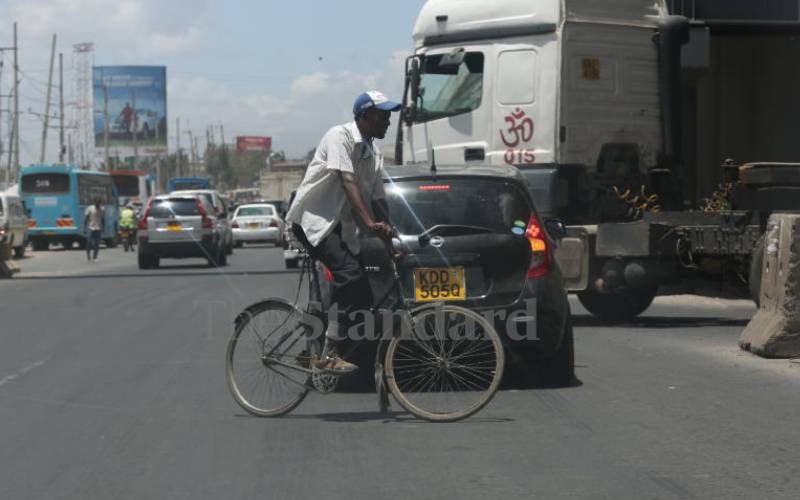×
The Standard e-Paper
Stay Informed, Even Offline

Cyclists are the forgotten lot in Western Kenya's transport sector. They are loathed by matatu operators and despised by boda boda riders on motorcycles who view them as a nuisance.
In the planning of towns in the region, the plight of cyclists is not a subject of discussion and has been largely ignored by authorities. In the entire Nyanza and Western regions, there are no special cycling lanes.